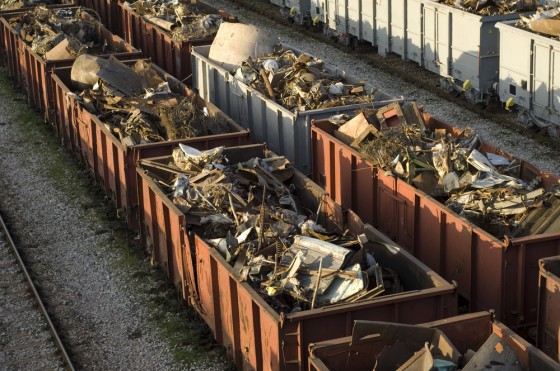Last week I wrote about a train derailment on the line I take to work every day. It was the third derailment in only a few months for the MTA. It turns out that two sets of tracks were destroyed as the result of a derailment of 10 cars on a CSX train hauling garbage at night.
The MTA responded promptly and by the next morning had plans in place, using buses and a subway line to get people to work in Manhattan. That was a Friday, and by Monday garbage had been removed from the tracks and one track was replaced so that service could mostly be restored. The second track was back a few days later.
But a recent letter to the editor of our local newspaper gave the incident a new perspective.
The reader pointed out that a CSX garbage train makes a trip four times each day to and from the Bronx, through Albany, to Virginia.
He stated, “The garbage is loaded next door to two gas-fired electric generating plants,” and pointed out that “every advanced country is converting garbage to gas for electric production – we are not.” Instead, we are hauling it to faraway locales to be placed in landfills.
Randy Leonard wrote in a column for The New York Times in September 2012 that strides have been made with a process called plasma arc gasification, developed by the U.S. Air Force. The gasification process was designed as an alternative to the open pit burns of garbage that some Iraq and Afghanistan veterans claim made them sick.
He noted that David Robau, an environmental scientist for the Air Force, “tours the country promoting a system that sounds too good to be true: It devours municipal garbage, recycles metals, blasts toxic contaminants and produces electricity and usable byproducts — all with drastic reductions in emissions.”
New York City and some waste companies are interested in the process, which is favored by some because it can destroy medical waste, asbestos, hydrocarbons and PCBs, he said.
Robau added that not all environmentalists are convinced, believing that complete disposal of waste will discourage recycling and development of renewable products. They also feel that gasification will still create toxic substances such as dioxins.
David Wolman reported in Wired Magazine, February 2012 that a huge garbage operation in Northern Oregon has included a plasma gasification facility. It is run by a startup company called S4 Energy Solutions – the first commercial plant in the U.S. to use the process to convert household garbage into gas products like hydrogen and carbon monoxide. The products can be burned as fuel or sold for other industrial applications.
So far gasification has not taken off, because the value of the product has yet to offset the energy required to power the high temperature furnaces needed to melt the trash. But I have faith (fingers crossed) that eventually solutions to many of the issues at hand will be found.
After all, garbage is cheap fuel.
As open land gets scarce and water tables are threatened, we will realize that capping landfills is not a long-term solution. Fossil fuels will also become too expensive, making that cheap fuel look better and better. In fact, I predict that we will eventually be mining garbage out of our landfills.
It’s only a matter of time.

